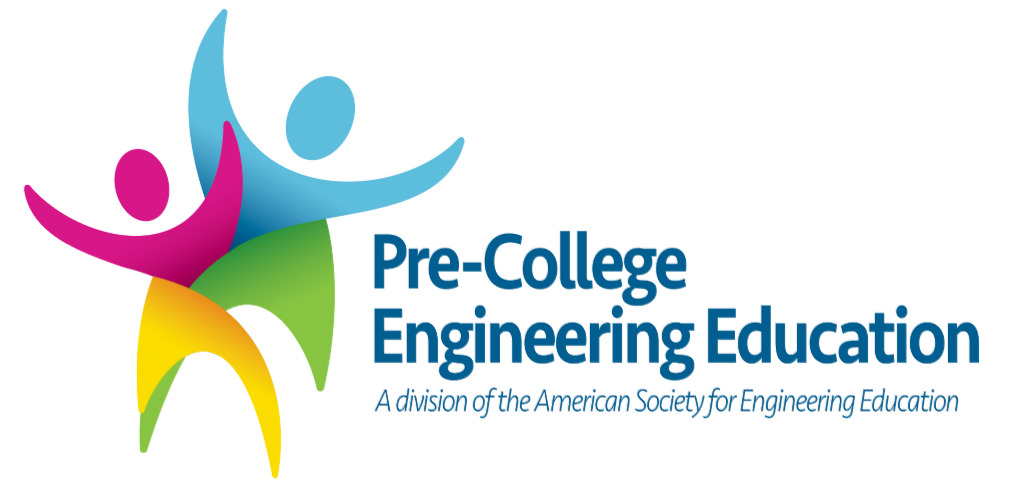2024 PCEE Paper Award Winners
The PCEE Division awards two annual awards: The PCEE Best Paper Award, and the PCEE Diversity, Equity, and Inclusion Award.
2024 PCEE BEST PAPER & BEST DIVERSITY, EQUITY & INCLUSION
PAPER AWARD WINNER
Impact of Professional Development in Culturally Relevant Engineering Design for Elementary and Middle School Teachers (RTP, Diversity)
Abstract
Effectively teaching engineering within a culturally relevant framework (Ladson-Billings, 1995) has the potential to dramatically increase student engagement, outcomes, and representation within STEM, particularly for students who have not historically seen science and engineering as relevant to their lives. Yet many teachers feel they lack the training and self-efficacy to include engineering in their curricula in ways that are meaningful and connect to students’ lives and communities (Hammack & Ivey, 2017). This paper describes results from a professional development (PD) program to help elementary and middle school teachers create and implement engineering design tasks in their classrooms that are relevant to the cultures and communities of their Native American and rural student populations and that are aligned with local STEM standards and curricula. A total of 15 teachers from grades 3-8 and in a range of subjects (Science, Math, Language Arts) participated in a full year of PD, including 5 days in the summer and 3 days during the academic year. Teachers implemented 3 culturally relevant engineering design (CRED) tasks that they designed for their own classrooms. A CRED framework was adapted from Guerra et al.’s (2012) engineering design process to explicitly include connections to community, culture, and place within each design stage (Identify, Describe, Generate, Embody, Finalize). The PD program was built on a theoretical framework using Bandura’s (1977) Social Cognitive Theory to develop self-efficacy and collective efficacy within the teacher cohort. Teachers were given tools, practice, and support to develop their own CRED tasks. The cohort model provided opportunities for peer mentorship and ongoing collaboration within and across school districts. PD sessions included time for teachers to develop lesson plans, explore resources, and reflect on their learning. We used a mixed methods research design to investigate the impact of the PD program on teacher self-efficacy and classroom pedagogy with a focus on cultural relevance and engineering design. Quantitative pre/post data was collected using three survey instruments: Teaching Engineering Self-Efficacy Scale (TESS), Culturally Responsive Teaching Self-Efficacy Scale (CRTSES), and Culturally Congruent Instruction Survey (CCIS). Qualitative data included videotaped classroom observations, individual teacher interviews after each design task, and teacher focus groups and written reflections during the summer and school year PD days. Study results showed a promising and consistent picture of increased teacher self-efficacy and changes to teaching practice. Statistically significant gains were seen in pre/post surveys, with specific gains that include increased self-efficacy related to “guid[ing] my students’ solution development with the engineering design process” and “us[ing] examples that are familiar to students from diverse cultural backgrounds” and increased classroom use of “science activities in which students designed solutions to problems relevant to their community.” Teachers also report increased engagement from all students, particularly among previously struggling and disengaged students who took on greater leadership, and female students who showed greater confidence and engagement. Teachers also noted increased student capacity for independence, creativity, problem-solving, and productive collaborative work.
Download the full paper here.
CITATION: Bowman, F., & Klemetsrud, B. J., & Ozturk, E., & Robinson, J., & Lacina, E. (2024, June), Impact of Professional Development in Culturally Relevant Engineering Design for Elementary and Middle School Teachers (RTP, Diversity) Paper presented at 2024 ASEE Annual Conference & Exposition, Portland, Oregon. 10.18260/1-2–47561
2024 PCEE BEST PAPER HONORABLE MENTION
Supporting Early Childhood Educators in Implementing and Adapting Research-based Engineering Activities Designed for Families (Fundamental, Diversity)
Download the full paper here.
CITATION: Svarovsky, G. N., & Wagner, C., & Lettau, M., & Marfo, K., & Pattison, S., & Ramos-Montañez, S., & López Burgos, V., & Corbett, A. R., & Quijano, M. D., & Contreras, D. (2024, June), Supporting Early Childhood Educators in Implementing and Adapting Research-based Engineering Activities Designed for Families (Fundamental, Diversity) Paper presented at 2024 ASEE Annual Conference & Exposition, Portland, Oregon. 10.18260/1-2–48036
Read More Pre-College Engineering Education Papers
Please enjoy all PCEE-related publications in ASEE’s PEER database. To find all of them, follow these steps:
- Navigate to https://peer.asee.org
- Toggle the “Advanced Search” button to see more options
- Type “Pre-College” in the search bar and tick the “Tagged Topics” box and the “Tagged Divisions” box
- Search

